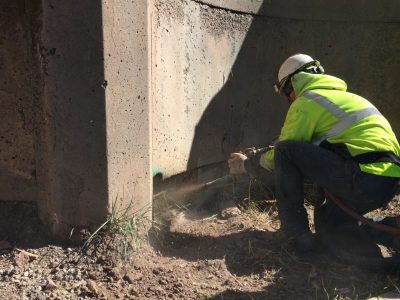Buying a new home is one of the most significant investments you will make, and it involves a multitude of factors beyond just finding the right location or the right price.
Ensuring that you choose a home that meets your needs and is a sound investment requires careful evaluation and consideration. Here are five essential things to consider when buying a new home, including the critical step of testing for radon.
1. Location and Neighborhood
One of the most crucial factors when buying a new home is its location. Evaluate the home’s proximity to essential services such as schools, hospitals, shopping centers, and public transportation. Living close to these amenities can significantly improve your quality of life and convenience.
Research the neighborhood to understand its character, community vibe, and safety. Visit the area at different times of the day to get a sense of the noise levels, traffic, and general atmosphere. Check crime rates and talk to potential neighbors to get their insights on the community.
2. Get It Tested for Radon
Radon is a naturally occurring radioactive gas that can seep into homes from the ground. It is odorless, tasteless, and invisible, making it difficult to detect without proper testing. Long-term exposure to radon is a leading cause of lung cancer, especially in non-smokers, and it poses a significant health risk if present at high levels in your home.
Before purchasing a new home, it is crucial to schedule radon testing to ensure it is safe for you and your family. A professional radon test can determine the levels of radon in the home and help you make an informed decision. If elevated levels are found, mitigation measures can be taken to reduce radon levels to a safe range.
3. Inspect the Home’s Condition
A thorough home inspection is essential to identify any underlying issues with the property that may not be visible during a casual walkthrough. Hire a qualified home inspector to evaluate the structural integrity, electrical systems, plumbing, roof, foundation, and HVAC systems.
An inspection can reveal potential problems such as water damage, faulty wiring, or pest infestations that could lead to costly repairs down the road.
Review the inspection report carefully from the new home contractor to understand the condition of the home and any issues that need attention.
4. Assess the Home’s Layout and Space
The layout and size of the home should meet your current and future needs. Evaluate the number of bedrooms, bathrooms, and living spaces to ensure they accommodate your family’s lifestyle. Consider how the flow of the home suits your daily activities, such as cooking, entertaining, or working from home.
An open floor plan may appeal to those who enjoy spacious and connected living areas, while a more segmented layout may offer privacy and quiet for different activities.
5. Evaluate Financial Aspects
The purchase price of the home is just one component of the overall cost. Evaluate the total financial commitment by considering additional expenses such as property taxes, homeowners insurance, utility costs, and maintenance fees.
Understanding these costs will give you a clearer picture of the ongoing expenses associated with owning the home and help you budget more accurately.








Comments